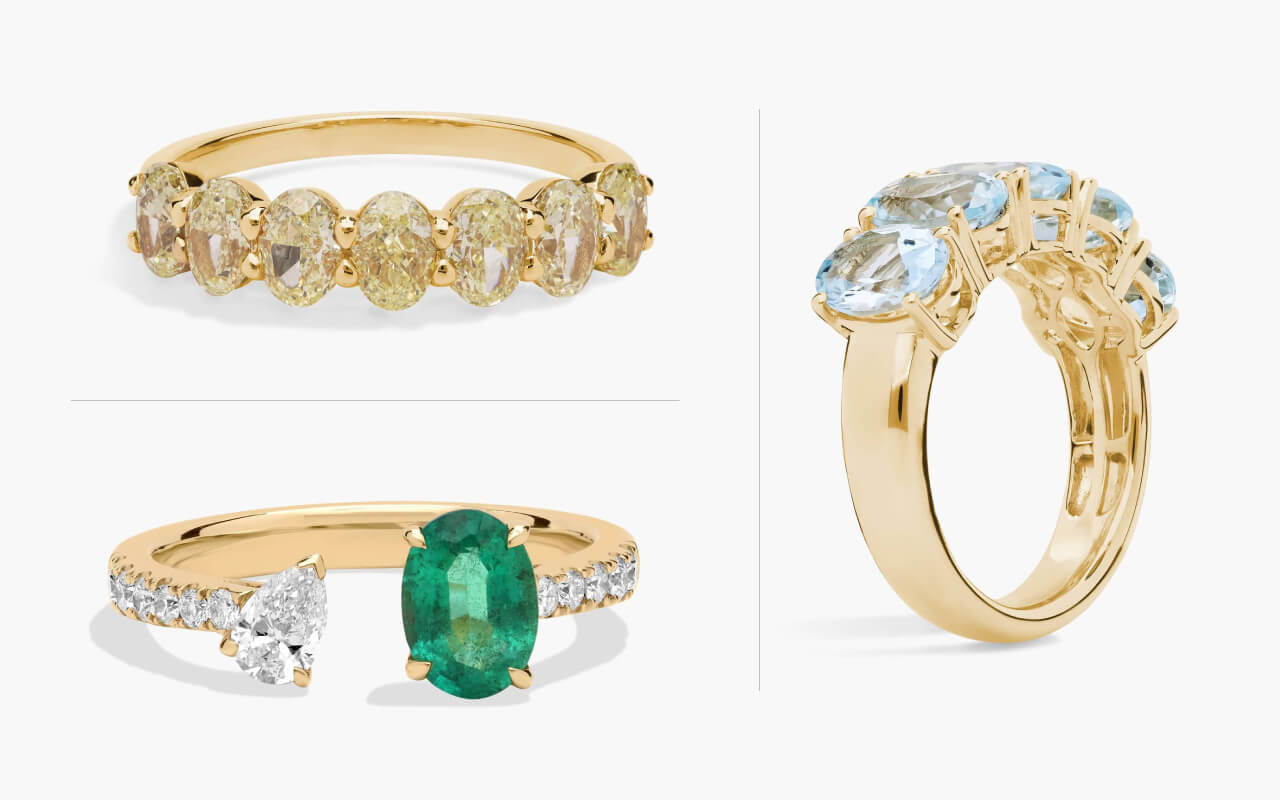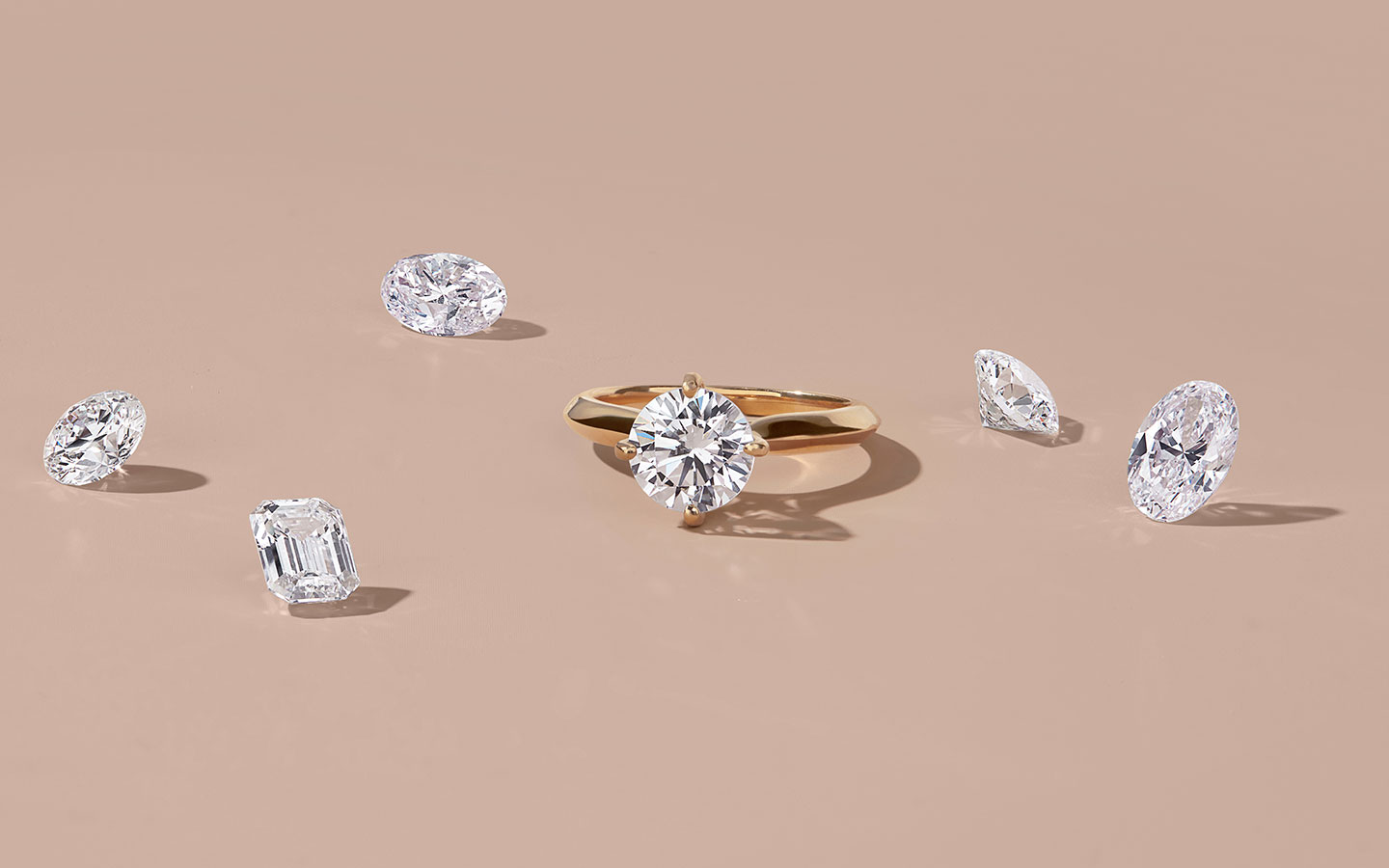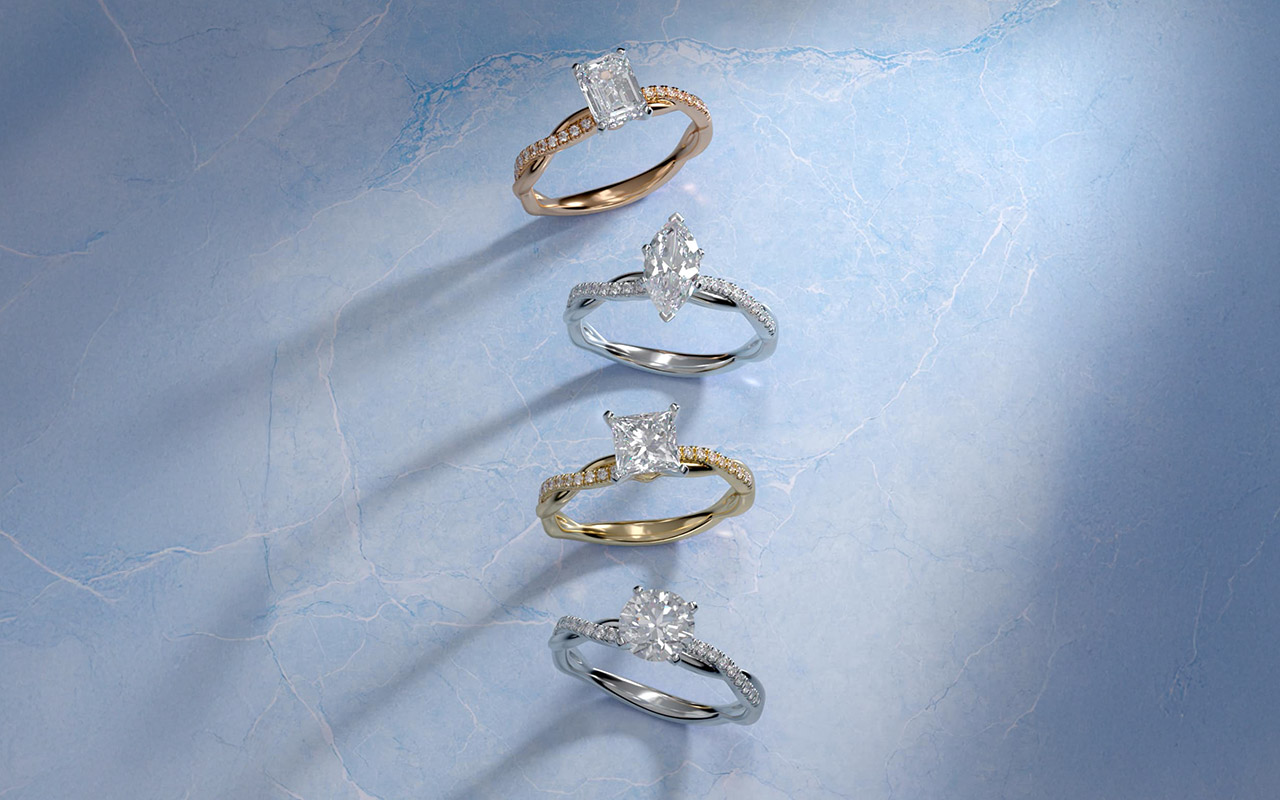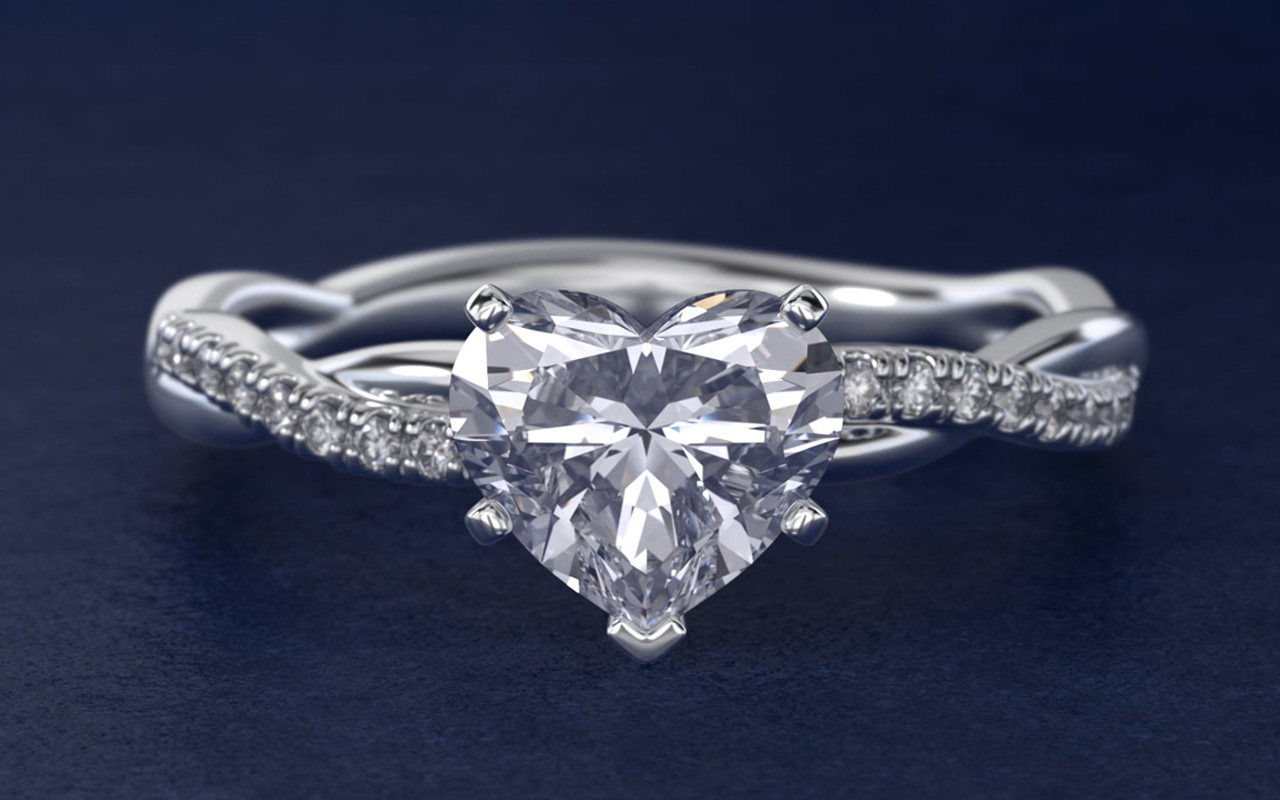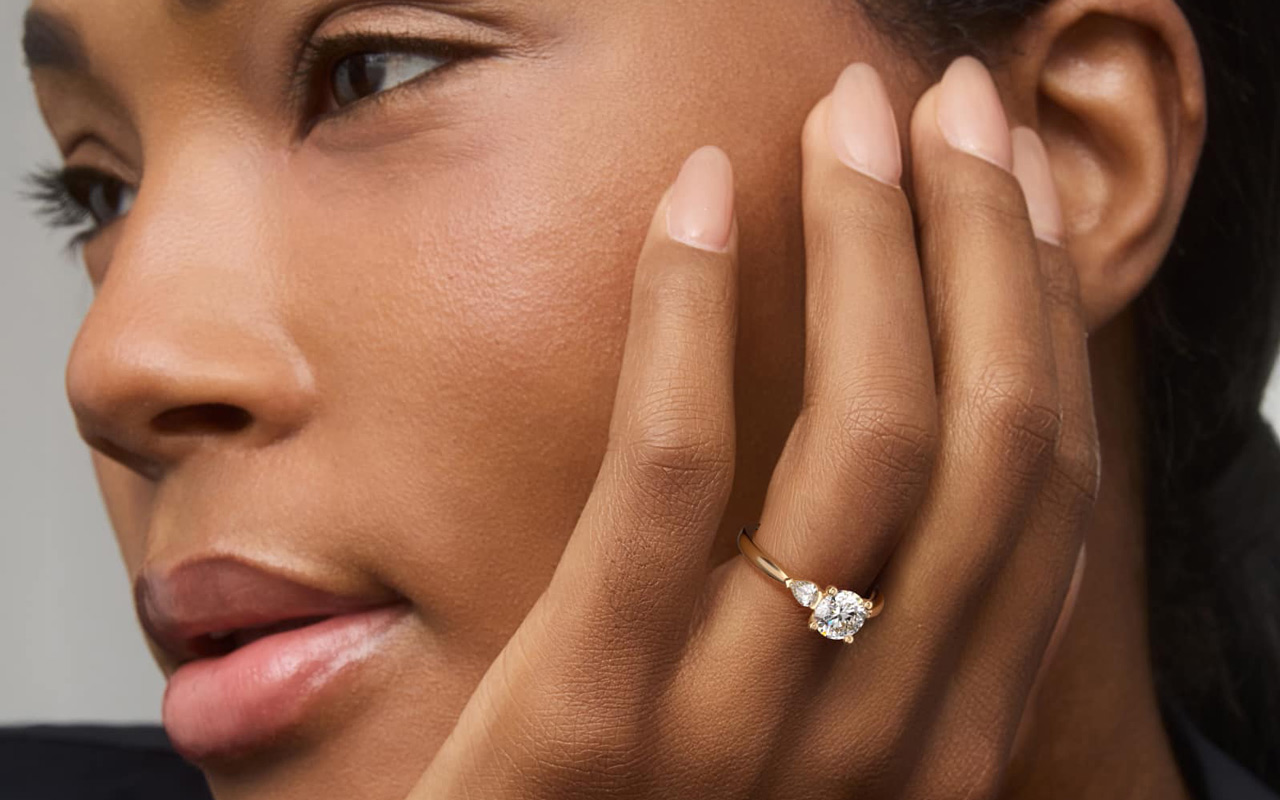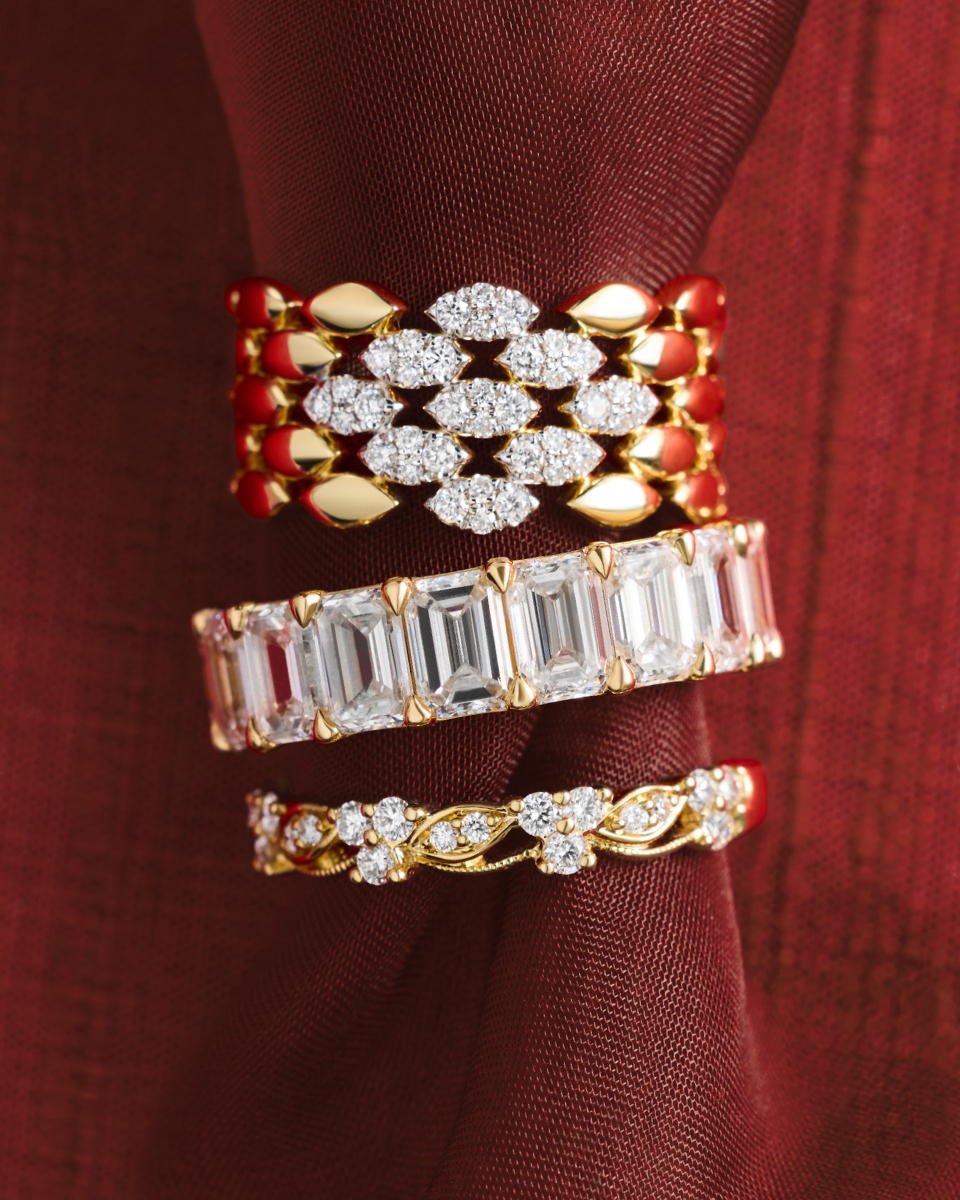High-quality jewelry doesn’t just look great, it’s also crafted to last. This means that jewelry should be waterproof so it can withstand the elements. While fine jewelry such as solid gold jewelry or platinum jewelry is waterproof, many makers are also showcasing their waterproof jewelry in different metals.
If you’re searching for truly waterproof jewelry, it’s important to know that not all tarnish proof jewelry is created equal. Some materials are more durable and more corrosion resistant than others.
We’re sharing the truth about waterproof jewelry and what to look for if you’re buying these pieces.
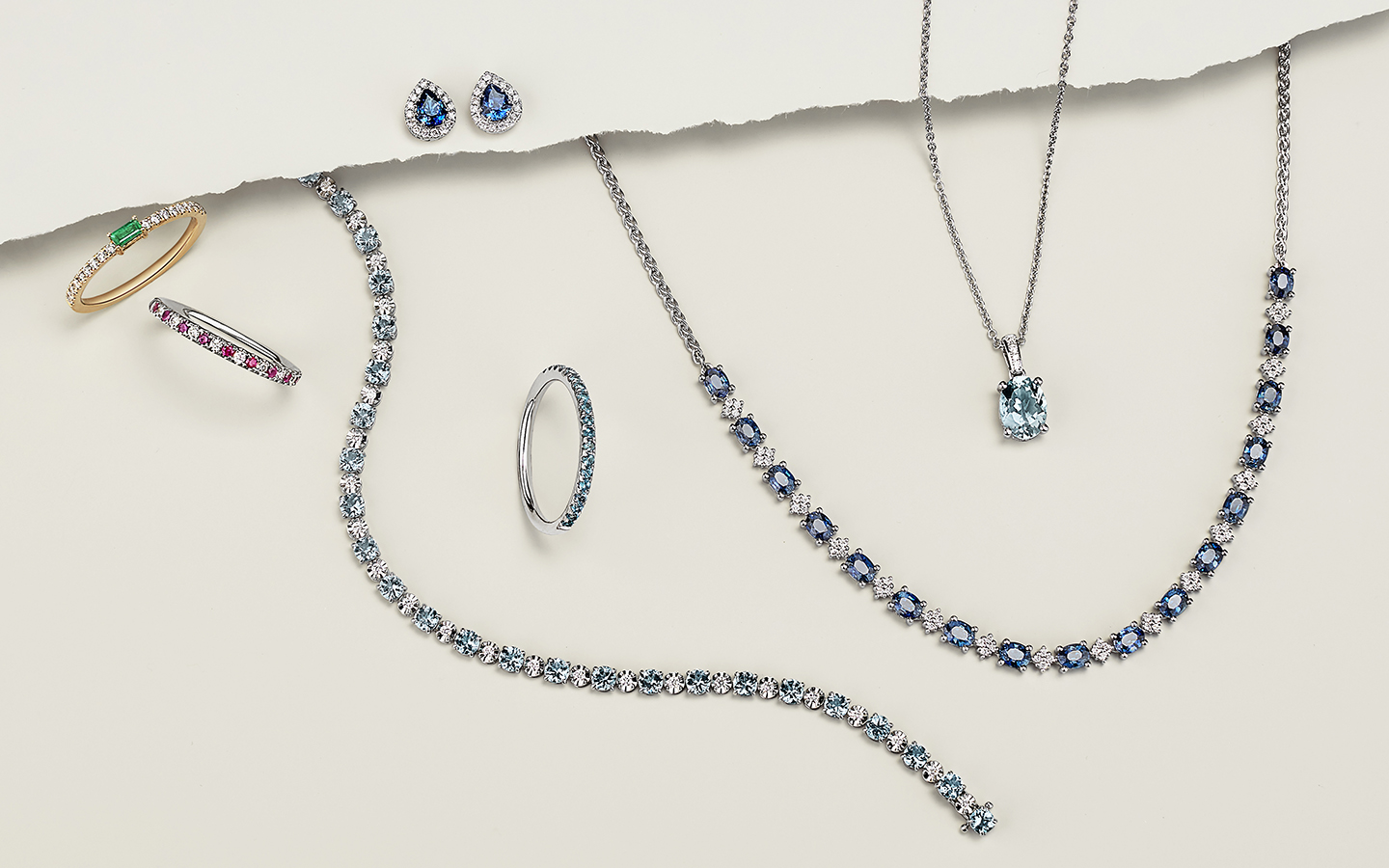
Defining Waterproof Jewelry
Jewelry that can be exposed to moisture without tarnishing, changing color, rusting or warping is considered waterproof jewelry. This is tarnish-proof jewelry that doesn’t rust, making it popular for constant wear. Waterproof jewelry is also known as sweat proof jewelry, shower safe jewelry or everyday jewelry.
Fine jewelry in waterproof styles features metals that are not reactive to water, making them resistant to water corrosion. This means the jewelry can get wet and, when properly dried, won’t tarnish. High-quality waterproof jewelry includes gold, platinum and silver. When comparing the different gold karats, 24k is the most waterproof due to its purity, but is susceptible to scratches. This makes 14k or 18k gold a better choice.
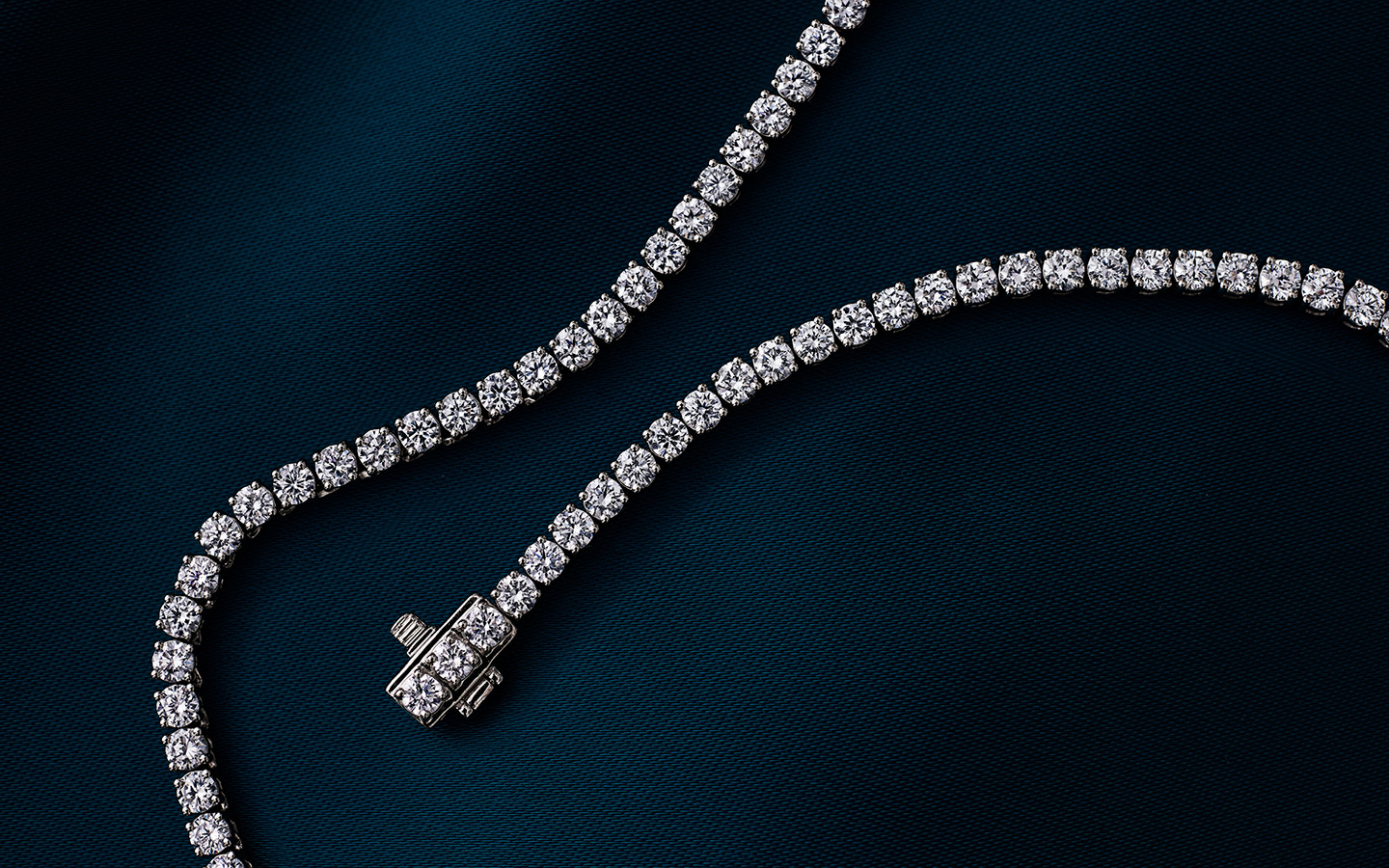
There are many costume or demi-fine jewelry styles that makers also call waterproof jewelry. These pieces are often made from stainless steel, gold plating or a combination of both. Though water resistant, they do not offer the same longevity that’s offered by fine jewelry in waterproof metals.
The Benefits of Waterproof Jewelry
Many people love the ease of waterproof jewelry. These pieces can be worn without worry of tarnishing, making them a popular choice for everyday looks. Waterproof gold, platinum and silver jewelry can stay on in many situations without tarnishing. If you’re in search of jewelry that will look great for years to come, our fine waterproof jewelry is the perfect fit.
Important Care for Waterproof Jewelry
Though gold, silver and platinum waterproof jewelry pieces are resistant to rust, they are not indestructible. Wear and tear can still damage waterproof and sweat proof jewelry, so it’s important to exercise caution with your jewelry.
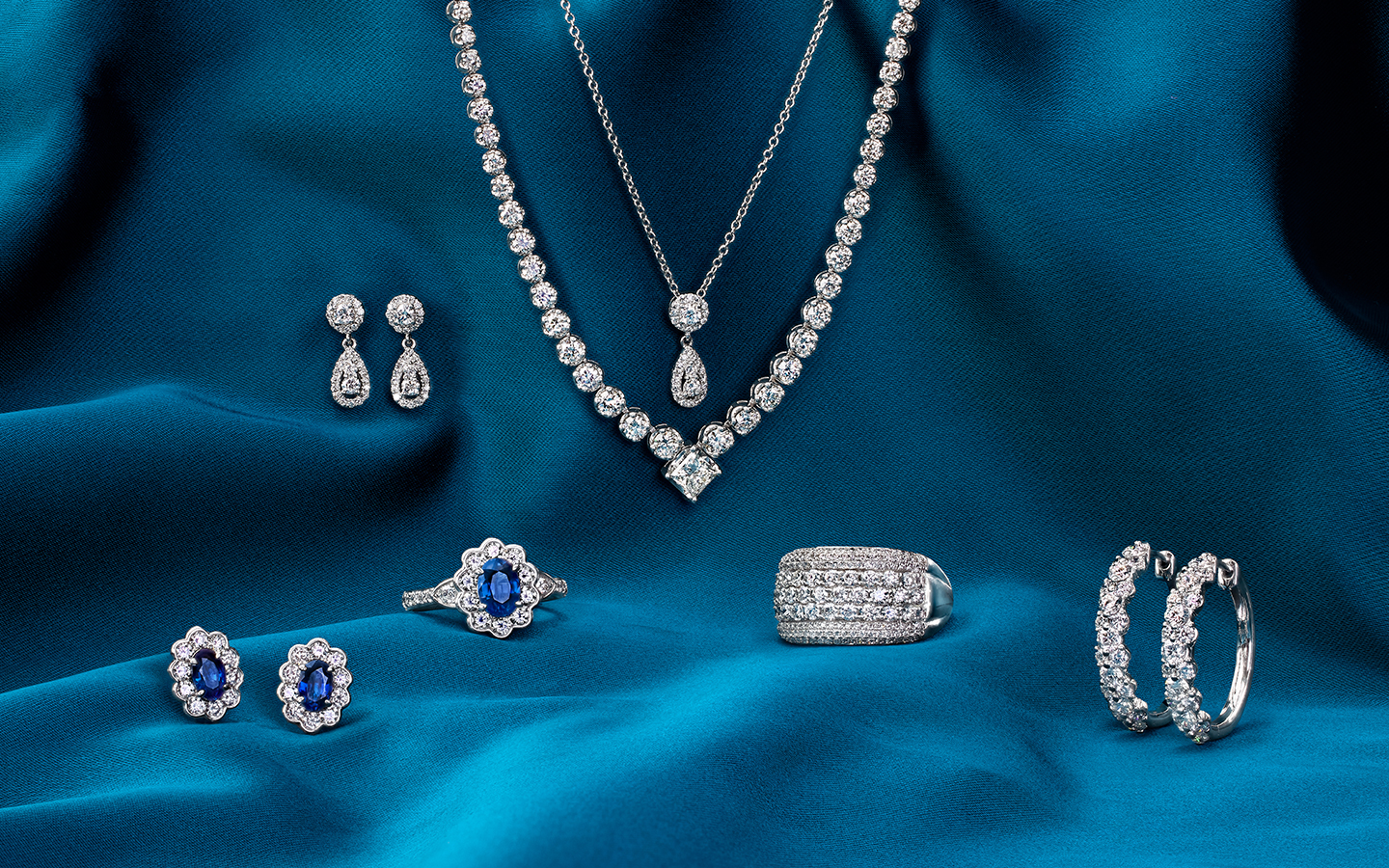
When wearing waterproof jewelry, take the following precautions to keep your pieces in shape:
- Don’t wear your jewelry in swimming pools, hot tubs or other treated water. Though waterproof, the metals in your jewelry can be damaged by the chemicals in pools.
- Thoroughly dry your jewelry following water exposure.
- Regularly inspect any settings for diamonds and gemstones.
- Avoid sudden temperature changes.
- Don’t wear your jewelry when you’re working out, especially rings, because weights can damage the jewelry.
- As with all jewelry, do not sleep in your waterproof jewelry.
- Do not wear your waterproof and sweat proof jewelry when gardening, hiking or playing sports. These activities can damage your jewelry.
- Avoid submerging strands of pearls in water.
- Do not expose your waterproof jewelry to chemicals like chlorine, lotions, cleaning solutions or other potentially-damaging chemicals.
Waterproof jewelry is more durable than other styles, but it still requires extra care to look its best. Many of our engagement rings, wedding rings, bracelets, necklaces, fashion rings and earrings feature waterproof metals.
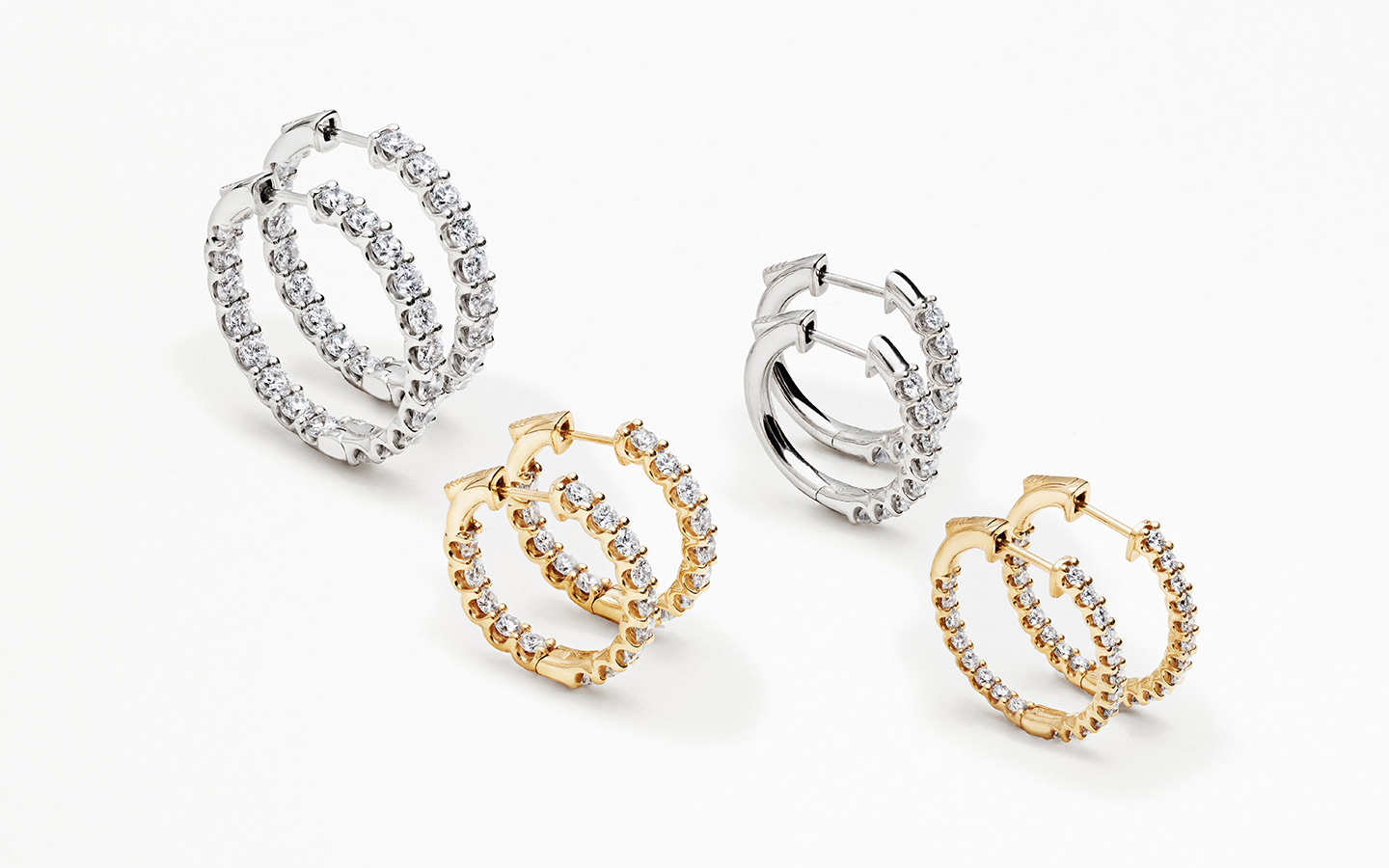
Questions and Answers About Waterproof Jewelry
Jewelry made from non-corrosive and rust-resistant metals is also known as waterproof jewelry. These are jewelry pieces that can be exposed to moisture without rusting, changing color or warping. Popular waterproof jewelry metals include gold, platinum, silver and stainless steel.
Yes, gold is a waterproof metal because it does not react with water. This means that your gold rings, gold earrings, gold bracelets and gold necklaces won’t be damaged by exposure to water, sweat and moisture. It is important to note that as with all waterproof jewelry, exposure to chemicals such as chlorine can damage jewelry. Avoid wearing your gold in hot tubs or swimming pools.
Waterproof jewelry brings the benefit of easy wear. These pieces can stay on all day in most circumstances, making them fun to wear frequently. Many waterproof styles are also hypoallergenic jewelry, making waterproof jewelry a popular choice for anyone with an appreciation for jewelry.
This is one of the biggest benefits of waterproof jewelry. Sweat proof, waterproof and tarnish proof jewelry can be worn in the shower without worrying about rusting or color changing.
Though many metals are waterproof, not all gems bring the same strength. It is important to remove any sensitive gems like pearl jewelry or opal jewelry to keep your pieces at their best.
Jewelry made from durable metals like gold, platinum, and silver will not tarnish when wet. To reduce the likelihood of water impacting your jewelry’s appearance, make sure to thoroughly dry your pieces following any moisture exposure.
Yes, waterproof jewelry is incredibly popular. Though there are many demi-fine and costume styles of this kind of jewelry, classic metals like gold, platinum and silver are the best choices for waterproof jewelry. Whether you’re wearing a silver necklace, a platinum ring or a diamond tennis bracelet, these styles can resist rust and wear.
It is not recommended to wear any jewelry in the pool. Chlorine and other chemicals in pools, hot tubs and other treated water can damage your jewelry.
Certain gemstones shouldn’t be exposed to excessive moisture, such as pearls. As a good rule of thumb, any gemstone that is under a 5 on the Mohs scale should not be exposed to water.
Non-reactivity is what makes some jewelry waterproof. Metals such as gold and platinum do not react to water, making them waterproof choices that resist rusting or tarnishing. Other metals like silver can be exposed to water when dried quickly after.
Though gold doesn’t react to water, some of the other metals it’s often alloyed with may react to water. Quickly drying your gold pieces after they’ve been exposed to water will ensure your jewelry doesn’t tarnish. High karat gold like 14k and 18k gold is safe for frequent wear as waterproof jewelry.
As a good rule of thumb, you should always dry your jewelry after it’s gotten wet.
It is not recommended to go swimming in any waterproof jewelry you want to keep at its best. In addition to the risk of losing your jewelry, the chemicals in treated water like pool water can damage jewelry.
Though your jewelry may be sweat proof, it is not indestructible. Many elements of workouts can damage jewelry. Weights can bend ring settings, necklaces can get caught on equipment and bracelets may be accidentally damaged. It’s best to take off your jewelry when you’re working out.
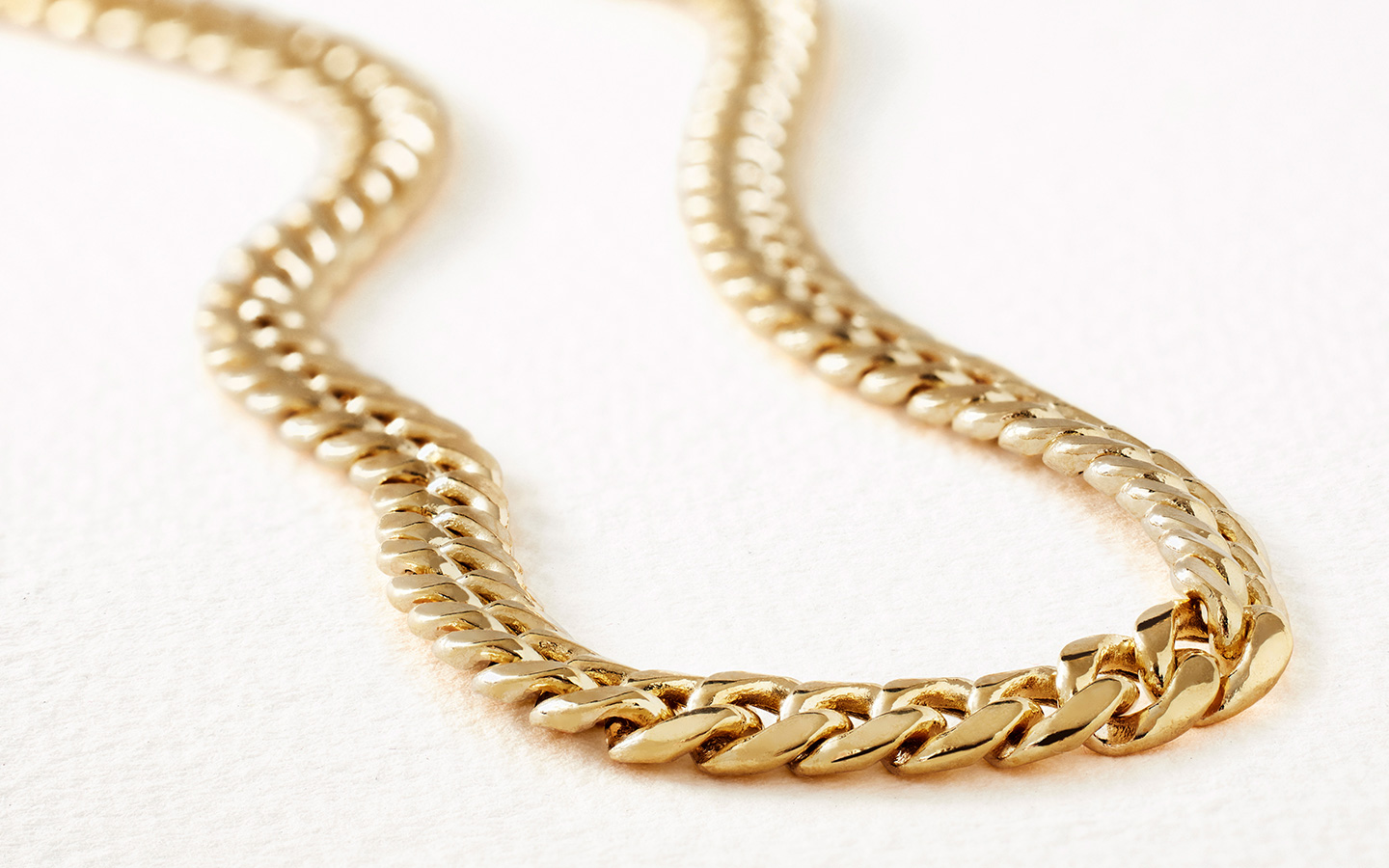
What to Look for When Buying Waterproof Jewelry
When buying waterproof jewelry, it’s important to consider the durability of the materials. Demi-fine and costume styles with gold plating or alternative metals will not last as long as solid gold, silver or platinum.
If you’re looking for waterproof jewelry you can wear time and time again, choose pieces in classic metals. We offer a wide selection of waterproof jewelry with silver, platinum and gold styles featuring popular gemstones and designs.
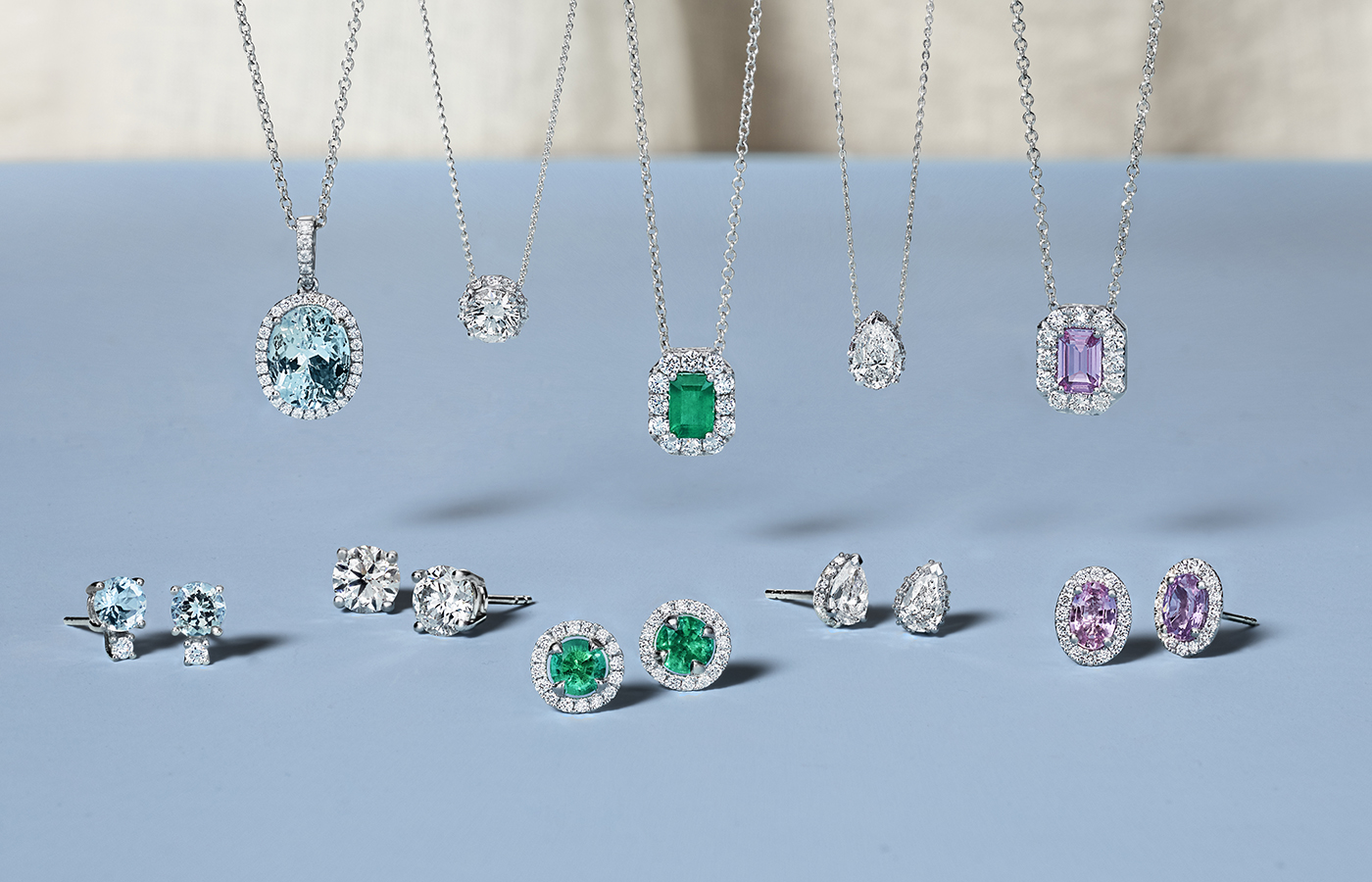
You should also look for jewelers you trust with free returns. Whether you’re shopping for waterproof men’s jewelry, anniversary gifts, birthstone jewelry or wedding styles, we have your fit.
We make it easy to find your new favorite piece of waterproof jewelry. Visit your nearest Blue Nile jewelry store or schedule your virtual jewelry shopping appointment with our experts to explore our waterproof, sweat proof and tarnish proof jewelry styles.


